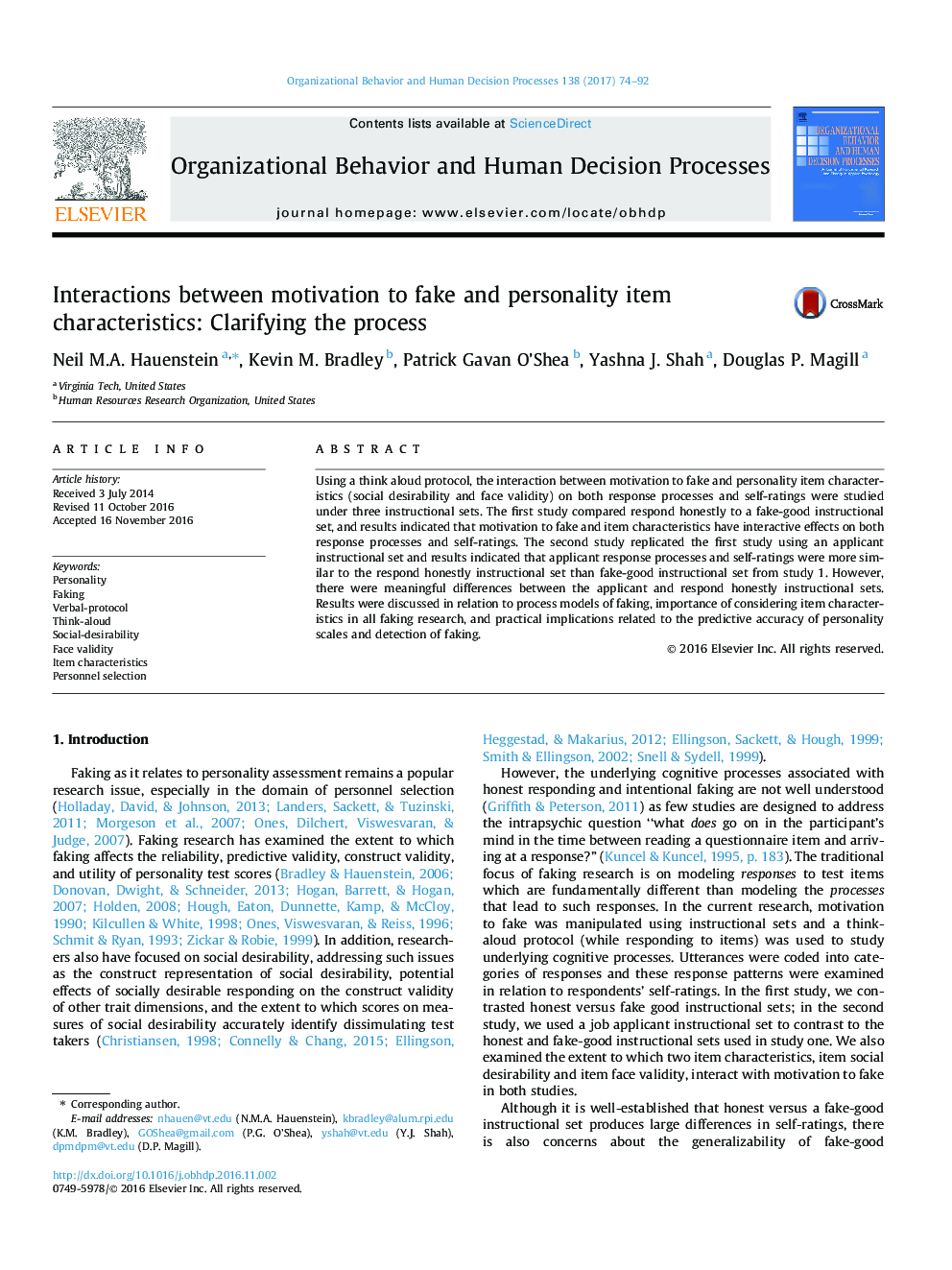| Article ID | Journal | Published Year | Pages | File Type |
|---|---|---|---|---|
| 5035336 | Organizational Behavior and Human Decision Processes | 2017 | 19 Pages |
Abstract
Using a think aloud protocol, the interaction between motivation to fake and personality item characteristics (social desirability and face validity) on both response processes and self-ratings were studied under three instructional sets. The first study compared respond honestly to a fake-good instructional set, and results indicated that motivation to fake and item characteristics have interactive effects on both response processes and self-ratings. The second study replicated the first study using an applicant instructional set and results indicated that applicant response processes and self-ratings were more similar to the respond honestly instructional set than fake-good instructional set from study 1. However, there were meaningful differences between the applicant and respond honestly instructional sets. Results were discussed in relation to process models of faking, importance of considering item characteristics in all faking research, and practical implications related to the predictive accuracy of personality scales and detection of faking.
Related Topics
Social Sciences and Humanities
Business, Management and Accounting
Marketing
Authors
Neil M.A. Hauenstein, Kevin M. Bradley, Patrick Gavan O'Shea, Yashna J. Shah, Douglas P. Magill,
